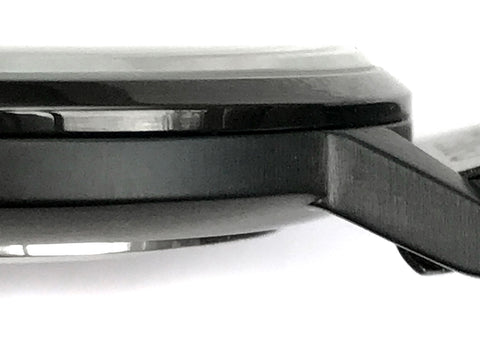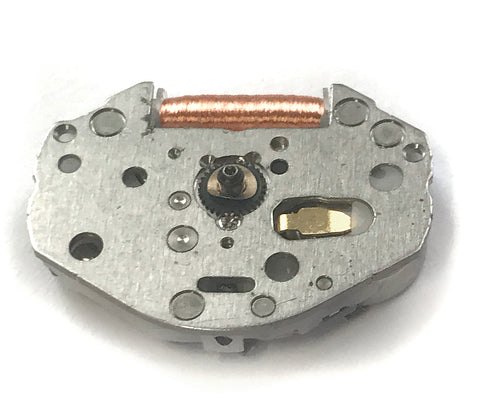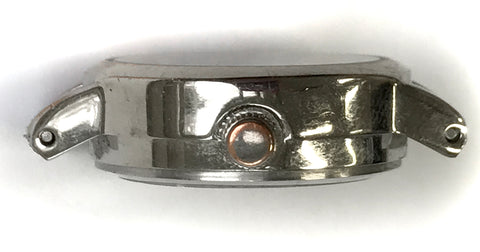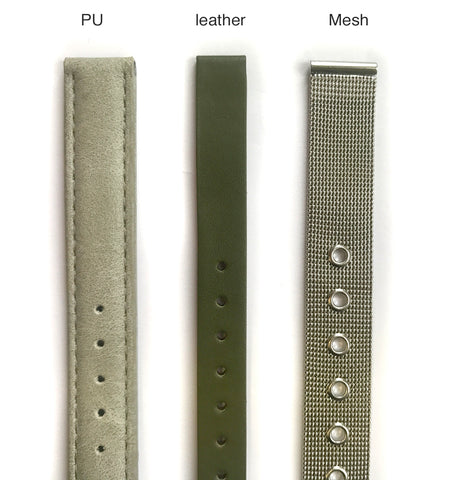August 08, 2017

So, I thought I’d do a blog to share some of the knowledge that I have gained after working in watches for the past 20 years.
I saw a video posted by a blogger, the post was just meant to be informative but unfortunately, it was a blatant sales pitch for a brand he blogged for.
The information given was very vague and criticised another watch brand, which I felt was unnecessary.
I then decided that I’d put together a blog about the quality of different watches in the hope it gives you the information you need when purchasing a watch.
The first thing is obviously your price point. If your budget is £30, you are going to get a very different watch to if your spending £3000.
If your spending £30, the watch your probably going to buy will be a fashion watch or just a watch for wearing every day.
Higher priced watches do take more consideration and our expectations of how they last is much more important.
Here are a few pointers to think about when deciding your budget and making your purchase.
There are different materials watches are made from. In order of cost, the following list is the different materials normally used for watches.
Cheap fun watches, often used on children watches although brands such as G-shock do use plastic. (I’d like to highlight there are different qualities of plastics and these can sometimes cost higher)
This is a metal made up from a mix of different metals and is normally used on fashion watches or utility functional watches. Watches made of alloy normally retail below £70 but there are some fashion brands that use alloy and retail up to over £100.
This is stronger than alloy and not that commonly used as much. There are qualities that brass has that other metals don’t, it is a stronger metal than alloy which means the finish on brass can be more refined. I would only use brass on a watch if I wanted a better quality than alloy but the watch had a shape that couldn’t be made from stainless steel due to intricate detailing.
This is used on most watches retailing £70 and over. It is a strong durable metal. As it is a silver colour it doesn’t need plating, unless the colour of the stainless steel watch is gold, rose gold or black etc. As it is a hard metal the finish on the watch is much higher than you would find on alloy. If the finish of the watch is a brushed finish, the detail of the fine lines is a lot more detailed than alloy. The metal can be made much thinner and still retain its strength, for example, if you wanted a thin edge to the case, this can be done in stainless steel but a watch in alloy could crush when the watch is assembled.
There are also different qualities of Stainless steel but for this blog I won’t go into this.
This is a very strong metal and the big difference to stainless steel is the weight. It is a much lighter material, although this can be very beneficial for some sports watches, a lot of peoples perception is its cheaper due to the weight.
Gold, silver etc use to be used a lot in the 1920’s 30’s but less commentary used today. It is normally premium Swiss premium brands that will use precious metals. Precious metals are much softer metal than other materials but the metal itself has a high value which is reflected in the cost of the watch.

OWL watches only use Stainless steel. We can get a beautiful finish on the watches. This is from our mens collection and shows the finish of brushed and polished together.
The movement is basically the thing inside a watch that makes it tick. There are many different movements available in the watch market. In order of value again some of the movements are as follows:
China quartz movement
These are very low price and known for unreliability although over the past few years they have improved significantly
An automatic movement doesn’t need a battery and the movement of when the watch is worn will power the movement. China automatic movements are respectable but are not as accurate as the automatic movements and its quite common to loose time.
These are very good quality and accurate movement, Citizen is commonly used and all the parts of the movement are made from metal and is a great quality movement. Seiko is also frequently used in fashion watches and this is made from plastic components. There are many other makes of Japanese movements available as well.
These movements are made, as Im sure you can guess, in Switzerland. These are very good quality but they also have the kudos of being from Switzerland which has the impression they are much superior. The Swiss movement has the beautiful feature of a sweeping hand where the Japanese ticks.
As with any automatic, there is no need for a battery and will power itself from the movement of your wrist. Swiss Automatic movements are premium and always come in a premium branded watch.
The reality is the Japanese and Swiss movement will both tell the time accurately, its just wether you have a preference and if its important to you.

This is a Japanese citizen Miyota Movement. We Use these on OWL as they are such a great movement and very accurate.
This is something that isn’t mentioned and its something I feel is very important. When people find out what I do for a living, I always get bombarded with complaints of watches they have bought from other brands and the plating has worn/tarnished withering a couple of months.
Below is a list of platings that can be used in order of quality and price.
This is used a lot on costume jewellery and is often used on low price watches. It is susceptible to tarnishing over a period of time, it will wear away and the colour can vary significantly, for example a gold can be pale gold colour and then be bright gold on a different batch of watches. If your buying a watch for £10, don’t expect the colour to stay as it did when you bought it.
This once again is a low quality plating somethings used on low price fashion watches. The colour can be controlled more but it is susceptible to rubbing off so after a few months, the likelihood is the colour of the alloy will be showing through.
There are different qualities of IP plating. A entry IP plating is a durable plating and will also a lot longer, it will eventually wear but unless it gets a lot of hard wearing, it should last a year without changing or wearing. Top grade IP plating will last a long time and is hard wearing.
This is the most durable. This is normally only used on Stainless steel and the colour is applied as its plated making it the best plating available.
Some companies do skimp on using a good quality plating because a good plating does cost a lot more, but I feel if you are making watches in Stainless steel, it is worth using a very good plating. I personally, would rather pay a bit more and know that my watch will look as good as it did when I bought it, than have a watch that has worn and tarnished.
Something I would always recommend with watch is is try to avoid spraying your perfume or get cosmetics on your watch. This can wear or tarnish the plating much quicker.

This is an example of a flash plating form a low price fashion watch. You can see the plating has worn away and the metal under the plating can be seen. OWL watches are only plated in a quality IP plating or PVD plating to avoid this.
As with everything listed above, there are loads of different qualities in straps. Here are a few:
This is a cheap material and is only normally found on low cost fashion watches. It does come in a large selection of colours and finishes which is why it is perfect for for the fashion market. There are also some brands now using PU at a much higher retail price and marketing the straps as ‘vegan’. A PU will wear quicker and over time can flake and wear easily.
This is commonly used and there are many different types for leathers at different price points. China leather is a lot cheeper but isn’t normally available in a good selection of colours and finishes. Italian leather is a beautiful material to use and often comes in a big selection of colours and finishes.
This is made from woven stainless steel and comes in different qualities. The thicker the strand of steel that the mesh is made from, the higher the price and the feel will be much more premium.
These are normally made from the same material as the case and they come in many designs and styles. Some low price alloy watches do use stainless steel which is a folded sheet of steel to make the bracelet, these are easy to tell as the weight is very light, also quite often, the folded steel can be seen from the side of the bracelet.

We currently use a quality leather or mesh on OWL watches. I love the feel of soft leather on the straps.
These are some of the things I would always recommend checking when making your purchase. I would also always say, keep in mind your budget, your not going to get a stainless steel, PVD plated, automatic, Swiss made leather strap watch for £20, but what I would say is, if you are planing on spending over £50 on a watch, make sure you are asking the questions to make sure you are getting value for your money.
I hope you find this useful and thanks for your time
Annette
Comments will be approved before showing up.
May 14, 2024
April 01, 2024